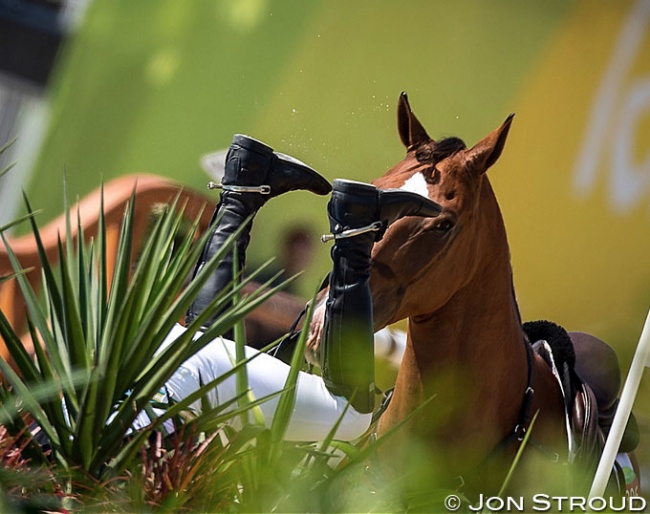
To keep equestrian athletes and horse owners involved in the sport during corona times, the FEI has posted an article with four ways to improve your riding without riding.
Sophie Baker did the write. Here are her....
4 Ways to Improve your Riding Without Riding
Here's a look at how we can enhance our riding even when we are unable to get in the saddle...
Wherever you are in the world, you’re probably spending more time at home and less time in the saddle.
Luckily, in the era of digital resources, there are still a few ways riders can continue their learnings without actually hopping onboard. Sure, there’s very little that can make up for valuable riding hours, but a holistic approach to yourself and your horse can really help keep those riding muscles flexed.
1. Online Videos are Your Saviour
If global businesses can operate through remote staff, it’s not a stretch to think that coaches and experts would take their expertise online too – and you can benefit from it.
There’s a whole bunch of great content flying around right about now, as well as plenty of special offers. You can watch videos of lessons or clinics from the greats or even from your friends or regular instructor. FEI TV is even free at the moment so you can watch footage of all the world's top stars in action!
On top of the FEI resources available on our website and through our Facebook page, Jane Savoie has some incredible YouTube videos to troubleshoot your Dressage, and even Beezie Madden has jumped on board lately with a couple of video tutorials on YouTube – talk about learning from the best!
You might not be able to go and ride straight away, but you can certainly learn the theory, get some awesome exercises up your sleeve, and start to plan your rides and what you want to achieve for later in the year.
2. Your Horse Can Go To School, Even If You Can’t
Even if you’re not allowed to ride, plenty of yards and trainers are still able to offer schooling services.
In this case, letting your horse get some valuable time under saddle with a professional can help you along dramatically when you’re able to get back on and ride.
If it’s at all possible, it’s a great idea to take advantage of any time that you have off by letting someone with more experience work on that tricky transition or quirky habit so that when we’re all back to normal, it’s easier for you to produce the work you’re looking for.
Who needs schoolmaster lessons when your own schoolmaster is busy being moulded for you?!
3. Work on Your Own Fitness
Many of us have fitness concerns when we’re off the horse; jumping jacks and skipping ropes just aren’t the same.
If you’re thinking that you might spend more time in front of the couch, just picture yourself trying to sit the trot for 15 minutes or stay strong in your core over fence after a stretch without exercise. Hopefully it’s enough to spur you back into action and motivate you to get your blood pumping.
Your choice of exercise can be anything, but try to keep it home-based and with a focus on increasing cardiovascular fitness and core strength. Whether you prefer body weight training, running up and down the stairs, or following a kickboxing DVD is completely up to you. Some yoga or pilates wouldn’t go amiss – it works wonders for equestrians.
You can check out this YouTube Playlist of Mari & Ali videos here
Working on your own strength and fitness will translate to improved posture and endurance in the saddle, as well as more finesse with your aids. Anyone who saw Kent Farrington’s crazy home workout video will agree that there must be some truth in the whole ‘better fitness = better riding’ thing.
4. Learning Theory
I know, I know. Nobody wants to make horse time about learning!
But if you have more downtime on your hands than usual, it’s the perfect time to expand your knowledge. And hey, think of it this way; you just have to dedicate half an hour of your evening Facebook scrolling to read an informative article, book, or even social media post.
There’s so much information to be had out there and learning more about the way of going, horse management, schools of thought, training systems and methodology, and how to ride particular movements or tackle training difficulties can really broaden your understanding of riding and give you more tools to cope with different horses and situations.
Start channeling your inner Olympian!
- by Sophie Baker - Photo © Jon Stroud
Related Link
Check out Eurodressage's Directory with Theoretical Articles about the History of the Sport, Classical Dressage Training, etc